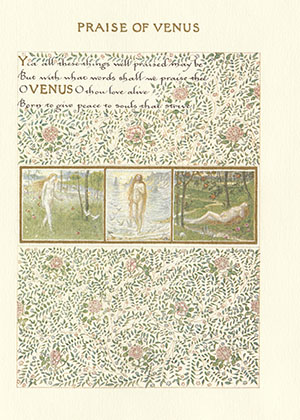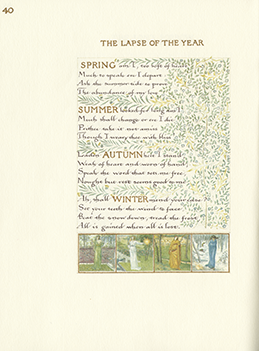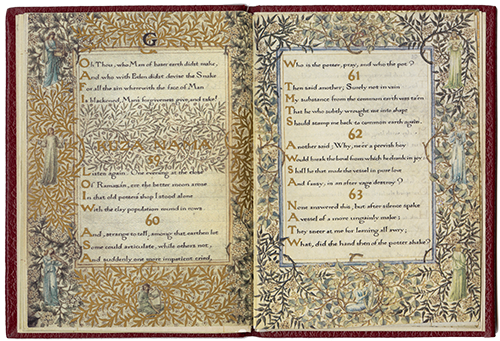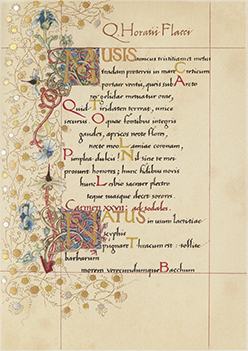Painted Books: Morris as Calligrapher

As a young man, William Morris cultivated an appreciation for gothic architecture and medieval texts. At Oxford University he launched his lifelong passion for acquiring and studying manuscripts from the Middle Ages. Morris's love of medieval texts inspired his determination to master the arts of illumination and calligraphy. He taught himself fine handwriting styles from a Renaissance instruction manual for scribes, and learned the art of gilding to add texture and luster to his pages.
For his most ambitious projects Morris ordered vellum from Rome. By 1875 Morris had completed eighteen illuminated manuscripts consisting of more than 1,500 pages, including drafts and fragments. Ever the collaborator, Morris often prevailed on his friends and Morris & Co. associates to provide drawings or ornaments for his manuscripts.
Image: "Praise of Venus" from A Book of Verse, 1870.
"I have always been a great admirer of the calligraphy of the Middle Ages"
- William Morris, His Aims in Founding the Kelmscott Press, 1898 -

A Book of Verse
William Morris, 1870.
A Book of Verse, Morris' first illuminated manuscript, was a birthday present to Georgiana Burne-Jones. Morris's illuminations are praised for their ever-varied designs and masterful use of color.
The Rubaiyat of Omar Khayyam
c. 1872
The Rubaiyat of Omar Khayyam, originally translated from Persian into English by Edward J. FitzGerald in 1859, was popular in Victorian England.
Morris is known to have illuminated two versions of this collection of 12th-century spiritual poetry. This edition is a facsimile of Morris's 1872 Rubiayat, which he hand lettered and illuminated for Georgie Burne-Jones. The Near East setting inspired Morris's use of rich jewel tones.


The Odes of Horace
Horace. c. 1873.
The Odes of Horace is another illuminated manuscript Morris created for Georgiana Burne-Jones. Morris abundantly applied raised gilding to decorate the pages of his manuscripts.
